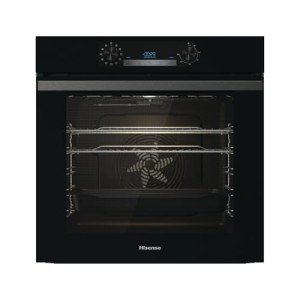14 Questions You Might Be Afraid To Ask About Built In Oven And Hob
The Modern Kitchen: A Guide to Built-In Ovens and Hobs
In today's busy world, where cooking has become a creative outlet and a vital part of daily life, having the ideal kitchen appliances is important. Amongst these, built-in ovens and hobs stick out as favorites in modern-day cooking areas. This post aims to explore these appliances in depth, discussing their advantages, types, setup alternatives, and necessary tips for selecting the very best models for your kitchen.
Comprehending Built-In Ovens and Hobs
What are Built-In Ovens?
A built-in oven is a home appliance that is designed to fit effortlessly into cabinets, offering a clean aesthetic in the kitchen. They vary from freestanding ovens and are understood for their adaptability, readily available in different sizes and functionalities. Built-in ovens can be electric, gas, or even steam ovens, making them ideal for different cooking designs.
What are Hobs?
Hobs, likewise referred to as cooktops, are the flat cooking surfaces normally located on the counter top. Like ovens, hobs are available in numerous types, including gas, electric, induction, and even integrated styles. Their compact nature permits for flexibility in kitchen layouts and styles.
Table 1: Comparison of Built-In Ovens and Hobs
Function
Built-In Oven
Hob
Setup Type
Integrated into kitchen cabinets
Set up on counter top
Cooking Methods
Baking, roasting, steaming
Boiling, frying, sautéing
Types
Single, double, combination
Gas, electric, induction
Aesthetic appeals
Modern, sleek designs
Different finishes readily available
Control
Digital shows, manual
Knob or touch control
Expense Range
Mid to high-range
Wide, depending upon type
Benefits of Built-In Ovens and Hobs
Visual Appeal
Built-in ovens and hobs contribute considerably to a streamlined look in contemporary cooking areas. Their combination into cabinetry enables a clean and professional surface that matches any kitchen design.
Space-Saving Design
Among the critical benefits of built-in ovens and hobs is their space-saving style. As they are fitted straight into cabinets, they maximize important counter area, making the kitchen feel larger and more arranged.
Adaptability in Cooking Methods
Built-in ovens included different cooking functions, such as convection, grilling, and self-cleaning choices. Similarly, hobs use varied cooking methods, consisting of quick boiling with induction innovation or the conventional flame of gas hobs. This versatility enables home cooks to try out a vast array of cooking strategies.
Enhanced Safety Features
Numerous modern-day built-in hobs and ovens come with sophisticated safety features, such as automated shut-off, cool-touch doors, and child locks. These features enhance safety, particularly in families with kids.
Selecting the Right Built-In Oven and Hob
Picking the ideal built-in oven and hob for your kitchen includes numerous considerations:
Factors to Consider
- Kitchen Layout: Understand the circulation and design of your area to select appliances that fit your style.
- Cooking Habits: Are you a casual cook, or do you prepare complex meals? Understanding your cooking requirements will guide your selection.
- Budget plan: Building a spending plan will assist narrow down your alternatives without spending too much.
- Energies Available: Check if you have access to gas lines for a gas hob or if you choose electric options.
- Energy Efficiency: Look for energy-efficient models that can minimize electricity or gas bills gradually.
Kinds Of Built-In Ovens and Hobs
Built-In Ovens
- Single Ovens: Ideal for smaller kitchen areas or casual cooks.
- Double Ovens: Great for those who often captivate or cook multiple meals concurrently.
- Combination Ovens: Feature both traditional and microwave functionalities.
Hobs
- Gas Hobs: Perfect for those who prefer the control of open flames.
- Electric Hobs: Common and easy to use, however might take longer to warm up.
- Induction Hobs: Quick heating and energy-efficient, however need compatible pots and pans.
Frequently asked question Section
**Q1: Are built-in ovens more pricey than freestanding ovens?A1: Generally, built-in ovens are more costly due to their design and setup requirements. Nevertheless, the price can differ based upon features and brands. Q2: Can I install a built-in oven myself?A2: While DIY
installation is possible, it is recommended to work with an expert for gas and electrical connections to make sure security and compliance with regional codes. Q3: What upkeep do built-in ovens and hobs require? Ovens And Hobs : Regular cleansing is necessary. Hobs might require periodicdescaling, and ovens can take advantage of self-cleaning functions if**
offered. Q4: How do I pick between gas and electric hobs?A4: Consider your cooking choices, readily available utility connections, and security features.**
If you value exact temperature level control, gas might be the
best option. For quick heating, electric or induction might be much better. Q5: What are the energy effectiveness rankings of built-in ovens and hobs?A5: Most contemporary built-in ovens and hobs featured energy ratings, similar to other appliances.
Try to find those with high ratings to minimize energy costs. In summary, built-in ovens and hobs are important parts of an elegant and practical modern-day kitchen. Their variety, safety features, and visual appeal make them an appealing option for homeowners and aiming chefs alike. By thoroughly considering your cooking routines, kitchen design, and style choices, you can select the right built-in appliances that enhance your cooking experience and transform your kitchen into a cooking sanctuary. The investment in these appliances not only includes worth to your home however also elevates your cooking to brand-new heights.  **
**